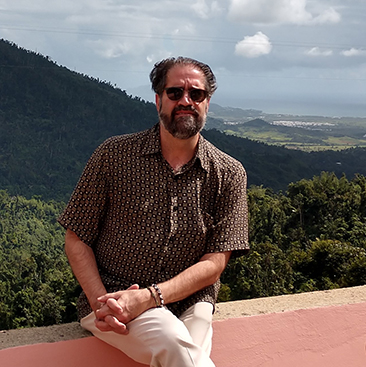Borges-Méndez co-leads study on local conditions, outcomes in Puerto Rico

Amid severe economic crisis, Puerto Rico was ravaged by Hurricanes Irma and Maria in 2017. These natural disasters, along with multiple earthquakes in 2020, devastated the housing market and created serious gaps in the local investment ecosystem. The COVID-19 pandemic has drastically complicated an already fragile recovery on an island that has the highest poverty rate of any jurisdiction in the United States.

Ramón Borges-Méndez, associate professor in Clark’s International Development, Community, and Environment Department, and Edwin Meléndez, director of the Center for Puerto Rican Studies at CUNY-Hunter (CENTRO), have been working in Puerto Rico to research how local conditions are limiting the entrepreneurial activity of community development corporations (CDCs), and what local, state, and federal policy avenues are available to reconstruct the housing development ecosystem, address bottlenecks, and build affordable housing.
A $224,000 Knowledge Challenge grant from the Ewing Marion Kauffman Foundation will support a 20-month research project in which Borges-Méndez and Meléndez will study how local ecosystems drive entrepreneurial outcomes in Puerto Rico. Collaborating with island and mainland community development corporations, private and nonprofit financial intermediaries, investors, and housing professionals, they will guide the design and creation of the Puerto Rico Community Predevelopment Fund (PRPDF), which will support affordable housing and other local economic development projects.
PRPDF will provide high-risk predevelopment loans, grants, and equity investments to CDCs promoting housing reconstruction, rehabilitation, and construction, as well as commercial development in downtown districts. The fund also will cover predevelopment costs such as architectural fees, environmental mitigation, acquisition, legal, and other consulting fees.

To bolster the long-term success of this project, PRPDF will support local CDCs through a network of certified and tested peer-to-peer technical advisers from stateside CDCs. This network will assure compliant project planning, hands-on collaboration, and diversified funding sources. To create a solid foundation for the network, Borges-Méndez and Meléndez will train staff at Puerto Rican CDCs on housing project development and capacity building and promote cooperation among the CDCs.
Borges-Méndez will bring this project into the classroom by integrating lessons into his Community Development and Planning graduate courses, and into the courses he teaches in Puerto Rico. The project, he says, is “an applied capacity-building project in which I connect research, practice, and action — this is how I teach and work.”
Samee Desai, director of Knowledge Creation and Research at the Kauffman Foundation, says that the grants “focus on inclusion and the importance of answering questions about the relationship between entrepreneurship, economic opportunity, and mobility. As we all struggle with the very serious effects of COVID-19, we need research that informs our way forward — not to go back to how things were, but to achieve a more resilient and inclusive economic system that serves all of us in the future.”
Borges-Méndez plans to meet with local CDCs in Puerto Rico before the research project is launched on February 1. By September 2022, the researchers and the CDCs hope to have completed the design and planning of seven shovel-ready, affordable housing projects.
The fall 2020 issue of CENTRO: Journal of the Center for Puerto Rican Studies, edited by Edwin Meléndez and published on Jan. 18, 2021, focused on post-disaster recovery and local participation and includes an article by Borges-Méndez, “Community Development Corporations and Reconstruction Policy in Puerto Rico.”
Betsy Rempel is associate director of Corporate and Foundation Relations at Clark University


